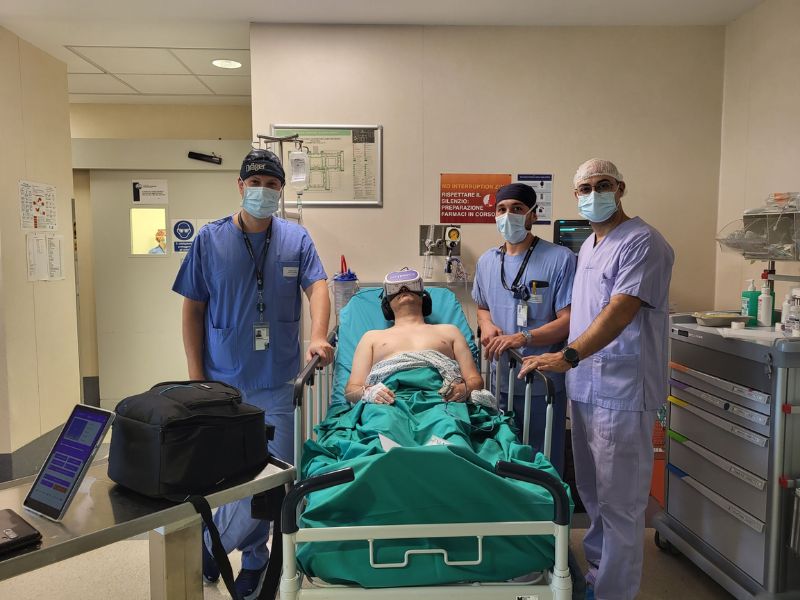
Hypnosis in the operating room: a new study on its effectiveness
Addressing Preoperative Anxiety: A Clinical Imperative
Approximately 70% of patients experience states of stress and anxiety before, during, and after a surgical procedure. Typically, sedatives, opioids, and anxiolytics can alleviate this discomfort, but they expose the individual to a series of significant consequences. Therefore, reducing the consumption of these drugs limits associated side effects (nausea, vomiting, concentration and memory disturbances), as well as the risk of encountering potentially serious complications, ultimately decreasing their overall effectiveness. Additionally, these factors contribute to accelerating recovery times.
Innovative Approaches: Medical Hypnosis through Virtual Reality
Anxiety is a significant issue that can negatively impact intraoperative and postoperative pain levels, making innovative approaches to alleviate it crucial for improving patient well-being. Medical hypnosis through virtual reality (HypnoVR) is emerging as a potential solution for managing anxiety in surgery before, during, or after an operation. This technology induces the individual into a hypnotic state, reducing their discomfort, making them more cooperative, and leaving them with a positive memory.
Case Study: Knee Prosthesis with HypnoVR
A study conducted at the Fondazione Policlinico Universitario Campus Bio – Medico, led by Dr. Fausto D’Agostino, an anesthesiologist, alongside Professors Felice Eugenio Agrò, Vito Marco Ranieri, Massimiliano Carassiti, and Rocco Papalia, with contributions from doctors and researchers Pierfrancesco Fusco, Angela Sinagoga, and Sara Di Martino, demonstrates the use of the HypnoVR visor in a knee prosthesis intervention for osteoarthritis in an 81-year-old woman.
Results and Implications: Anxiety Reduction and Improvement of Well-being
To address anxiety, the patient underwent a HypnoVR session with a virtual reality visor during the surgical procedure, immersing herself in a relaxing virtual environment. Vital parameters (heart rate, blood pressure, and saturation) were recorded using a multiparametric monitor before, during, and after visor application. Post-intervention evaluation showed a significant reduction in anxiety levels; the patient reported feeling more relaxed and less anxious. Recorded vital parameters indicated a decrease in heart rate (from 109 to 69 bpm) and blood pressure (from 142/68 to 123/58 mmHg) with visor use, consistent with anxiety reduction. The surgical procedure was well-tolerated, resulting in high patient satisfaction, and sedatives or anxiolytics were not required throughout the operative period.
Sources
- Centro Formazione Medica press release


